Alan Arkin was brilliant, difficult, spiritual and mysterious: ‘He’s always been underestimated’
As the Oscar-winning star of ‘Little Miss Sunshine’, ‘Argo’ and ‘Catch-22’ dies at the age of 89, Martin Chilton looks back at the life and career of an actor with exquisite timing, depth and deadpan delivery – and who had little time for the trinkets of stardom


Alan Arkin’s private life was about as far from Tinseltown superficiality as a Hollywood superstar could get. The Oscar-winning star of Little Miss Sunshine and Catch-22, who has died at the age of 89, cultivated his own organic vegetables in his Santa Fe garden, pored over Eastern philosophy, went for long walks, baked bread and meditated for more than two hours a day.
Although they watched movies and old Seinfeld shows on DVD, he and his wife Suzanne avoided popular culture. “We haven’t watched TV in 12 years,” Arkin admitted in 2020. And that included Netflix’s The Kominsky Method, which would mark Arkin’s final significant acting role. For three seasons, he portrayed Norman Newlander, the agent to actor Sandy Kominsky (played by Michael Douglas). The show ended in 2020 but, when speaking to The Independent in 2020, Arkin’s publicity manager confirmed that the actor had no plans for retirement, after a career in which he’d made 80 movies and starred in dozens of television shows and plays. Arkin did, however, once tell his friend Andrea Donsky that “the less work I get, the better my health. The stress in the market place is enormous and my system has a fast reaction. I can’t deal with stress anymore.”
Arkin wanted to be an actor from the age of five as a way of getting attention from his parents. His upbringing was certainly tumultuous. His father David, a communist, was a victim of the McCarthy witch-hunt, fired after refusing to sign a Los Angeles school authority declaration about his political beliefs. “He couldn’t get a teaching job for the next 15 years,” recalled Arkin, who was born in New York on 26 March 1934. It was a period in which they were permanently “dirt poor”. His father painted and wrote poetry and his mother Beatrice played the piano, handing on a love of culture. “We hung around with a lot of musicians,” Arkin told AV Club. “My family knew a lot of great folk musicians of the time, like Woody Guthrie, Paul Robeson, Leadbelly.”
After leaving Los Angeles City College, and putting his acting ambitions to one side, Arkin became a founder member of folk band The Tarriers. He had a co-composing credit on the pop hit “The Banana Boat Song” – a million-selling single for Harry Belafonte in 1956, which Arkin joked “we both stole from Jamaica”. Arkin appeared in a 1957 film with his bandmates called Calypso Heat Wave – an obscure start to a glittering movie career.
Music remained a vital part of Arkin’s life, however. He would go on to play “pretty good guitar, reasonable flute and terrible saxophone”, enjoy talking about jazz with his professional bass-playing brother Bob, and he would write and record more than 100 songs for children with his family group The Baby Sitters. Yet he was usually uneasy discussing this early part of his career. Over the years, he dismissed his time as a folk musician as “a stop-gap”, “a waste of time”, and even told one reporter that he was “bored” of talking about a time that was just a way to “keep me in underwear and burritos”.
After quitting music to pursue a career in acting, he spent several years scuffling around for work, making ends meet with occasional music sessions and selling science-fiction stories to magazines. It was a tricky time. In December 1955, he married 18-year-old Jeremy Yaffe, a former Bennington College classmate who was pregnant with their first son, Adam. They moved to St Louis to try to get his acting career off the ground. The big turning point in Arkin’s life came in 1960, when he was hired by Chicago’s influential revue company Second City. “I was broke, so my marriage was falling apart, and at the age of 28 I was convinced nothing would ever happen to me,” he told The LA Times in 1998. “Then Paul Sills, who’d seen me in an improvisation group at The Crystal Palace in St Louis, offered me a job in Chicago. Absolutely nothing else was going on for me, so I thought, ‘What the hell, at least it will give me something to do.’”
It took him six months to pay off his debts, during which time he got a divorce from Yaffe, shortly after their second son Matthew was born. She remarried and retrained as a nurse, while Arkin went on to find international fame and fortune. His talent at Second City was obvious and he said that during his two years there, “I developed a library of characters the audience seemed to like.”
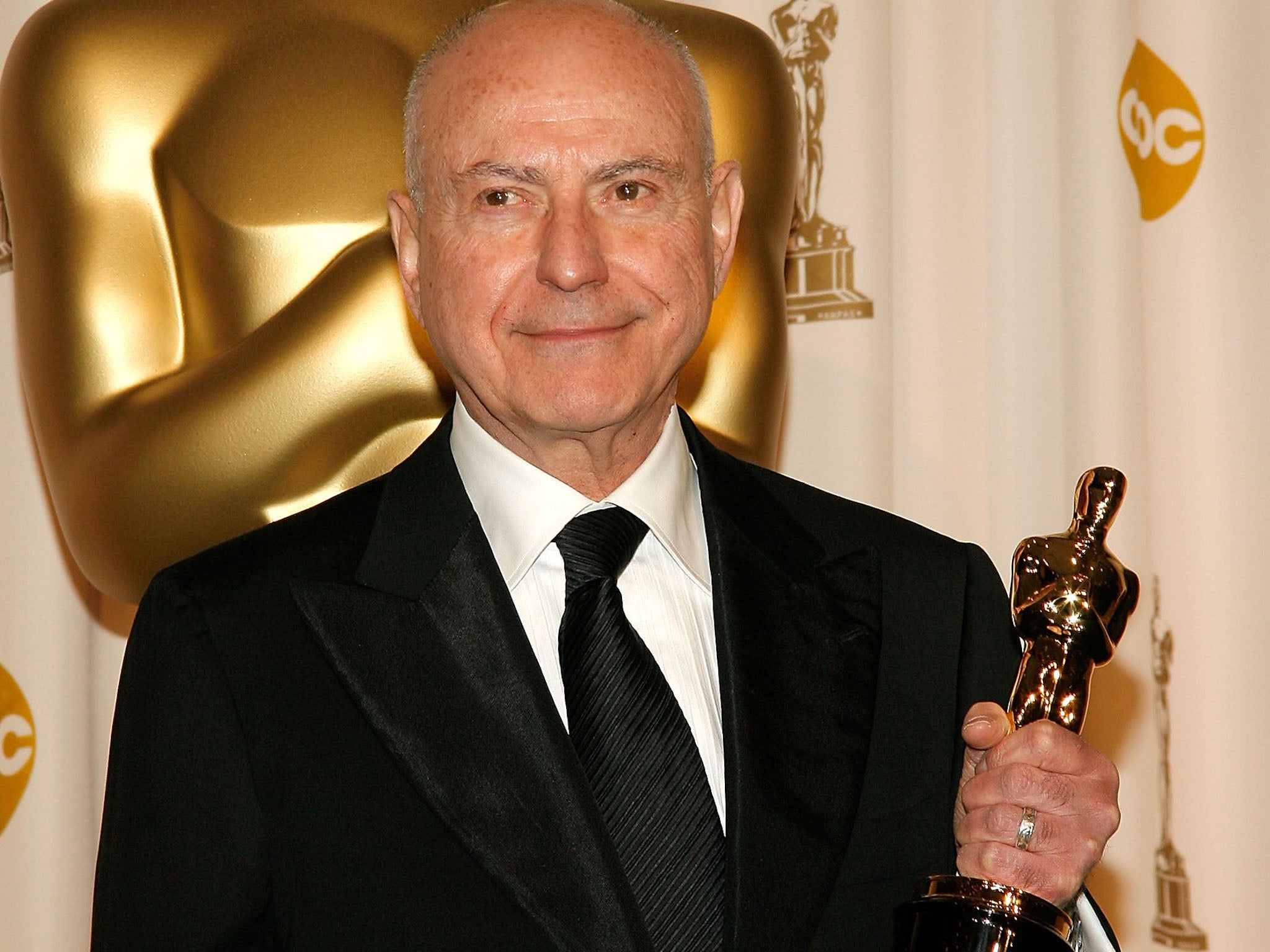
Celebrated critic Kenneth Tynan said that at Second City Arkin was “absolutely brilliant and came up with some of the most hilarious improvisation I’ve ever seen”. Groucho Marx used to go and see him in action and the pair became friends. Arkin left Second City in 1963 and had a brief, successful career on Broadway. He won a Tony for his first play, Carl Reiner’s Enter Laughing. In 1964, the year in which he married actor Barbara Dana, he received huge acclaim for his role as the dishevelled Harry Berlin in the Murray Schisgal comedy Luv. “The best compliment I ever had was from playwright Irene Fornés,” Arkin told The New York Times. “When she saw me in Luv, for 20 minutes she thought they had let some real bum on stage.”
Despite the Broadway triumphs, Arkin did not want to continue working in theatre, something he found “too repetitive”, and he lacked any “secret desire” to play King Lear or Hamlet. Luckily, his performance in Lull also caught the eye of film director Norman Jewison, who auditioned Arkin for a role in the Cold War comedy The Russians Are Coming, the Russians Are Coming, after it was rejected by Peter Ustinov.
Arkin earned a Best Actor Oscar nomination for his screen debut as the stranded Soviet submarine commander Lieutenant Yuri Rozanov, setting in motion a magnificent career as a character actor. “Alan’s never had an identifiable screen personality because he just disappears into his characters,” Jewison said in 1991. “His accents are impeccable, and he’s even able to change his look. But, oddly enough, this gift has worked against him. He’s always been underestimated.”
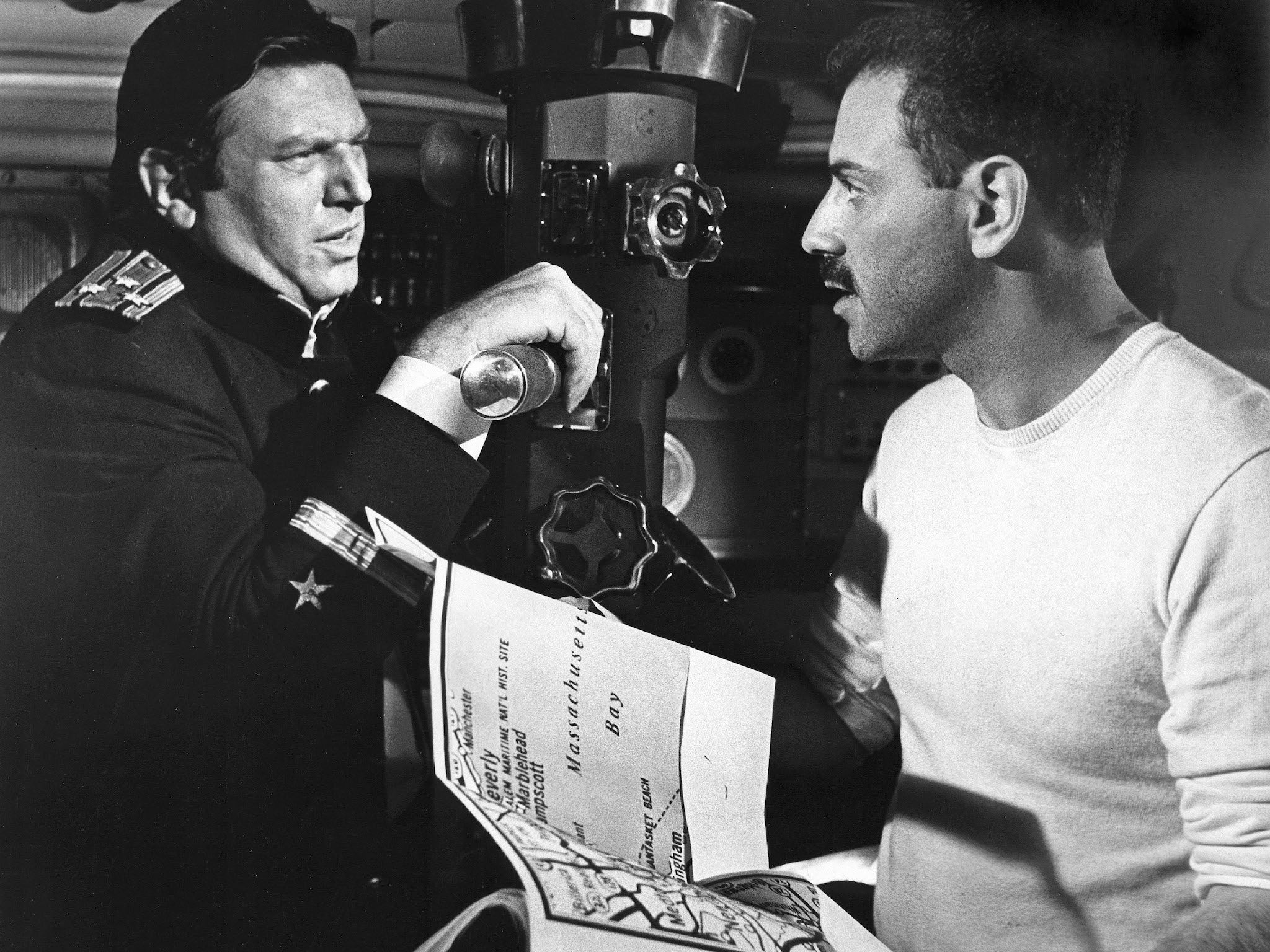
The roles came thick and fast after Arkin’s Academy nomination. He was superbly menacing as the criminal who terrorises a blind Audrey Hepburn in Wait Until Dark, a role that Stephen King described in his non-fiction book Danse Macabre as “maybe the greatest evocation of screen villainy ever”. He earned a second Oscar nomination in 1968 for playing a deaf and non-verbal silver engraver in an adaptation of Carson McCullers’s novel The Heart Is a Lonely Hunter.
Over the next six decades, he carved out a reputation as an actor of exquisite timing, depth and deadpan delivery. Among his best performances are those in The In-Laws (1979), a terrific movie with Peter Falk, Edward Scissorhands (1990), Glengarry Glen Ross (1992), Grosse Point Blank (1997), Gattaca (1997), Little Miss Sunshine (2006), for which he won an Oscar as Best Supporting Actor, and Argo (2012), which earned another Oscar nomination. He was intensely proud of his role as Grandpa in Little Miss Sunshine. “He’s a maniac, but to me he was absolutely believable,” he commented. However, Arkin always downplayed the importance of awards, joking once that “I’ve never met Oscar Buzz. I’ve heard a lot about him, but I’ve never met the man.”
Arkin was also proud of his contribution to Glengarry Glen Ross, as part of a stellar cast that included Al Pacino, Jack Lemmon, Ed Harris and Alec Baldwin. He joked that there was so much swearing in the movie that the cast dubbed it “Death of a F***ing Salesman”. “It was the hardest role I ever worked on,” said Arkin. “The dialogue was murderously difficult. Screenwriter David Mamet is harder than Shakespeare, by far.”
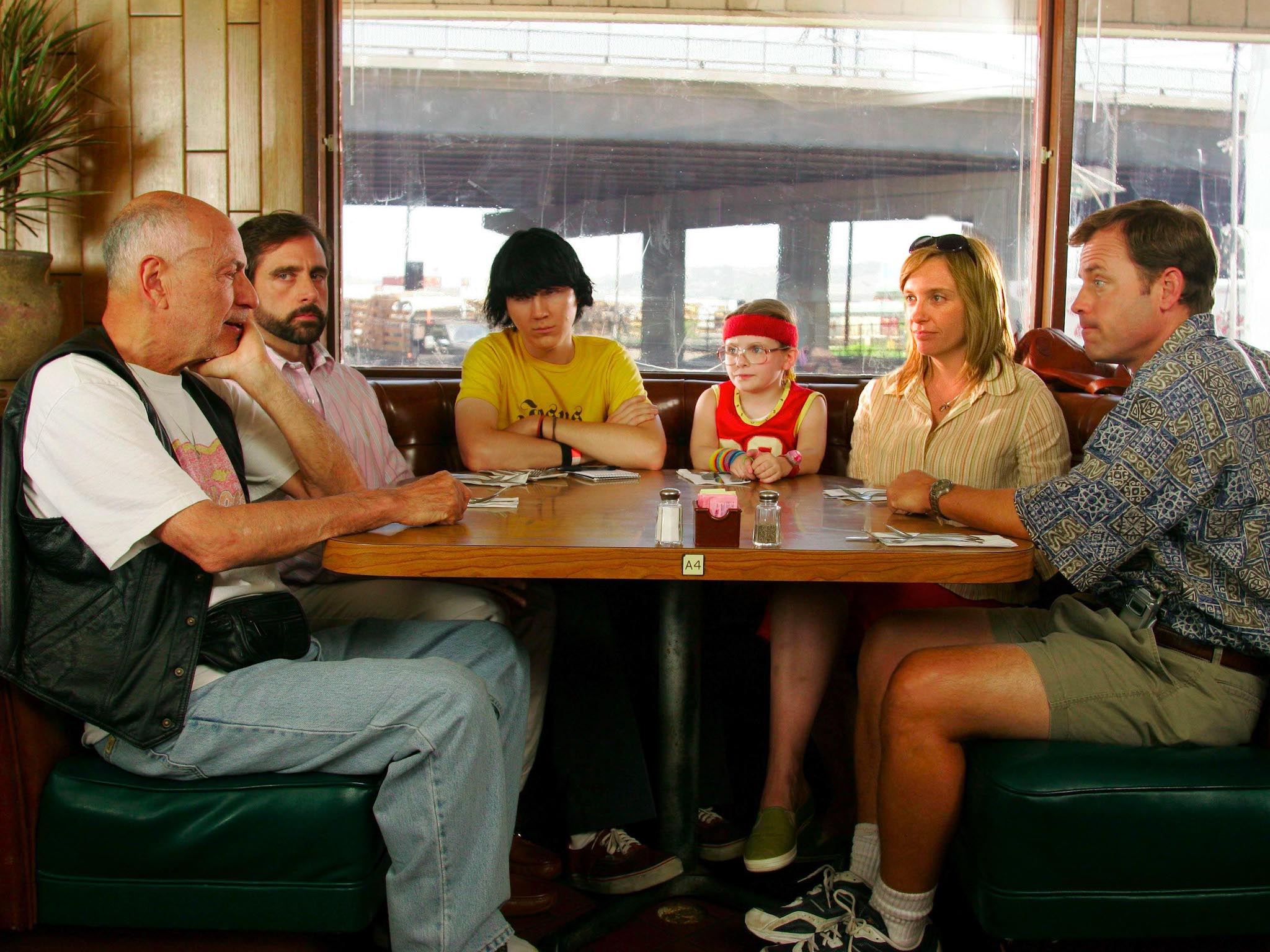
Arkin, a perfectionist, was always honest about his own flawed performances. He described acting as “torture” and said that “if I didn’t do a scene well I felt as if I’d died”. He described his attempt to play the role of Inspector Jacques Clouseau in 1968, a role made famous by Peter Sellers, as “a failure” and admitted he’d been in lots of “terrible” movies.
Arkin was also an enthusiastic bookworm – he loved the novels of Kurt Vonnegut and Joseph Heller – and enjoyed acting in literary adaptations. He had especially fond memories of starring in a film version of Mordecai Richler’s novel Joshua Then and Now. As Captain John Yossarian, Arkin delivers the memorable line, “Whoo… that’s some catch, that Catch-22” in the celebrated 1970 adaptation of Heller’s classic novel. Arkin hated his part in Catch-22, though. In 2012, during an interview to promote Argo, he was asked about playing Heller’s famous anti-hero. “Oh, I don’t want to talk about Catch-22,” he told NJ.com. “I’m not happy with my work as Yossarian, I’ll tell you that. That picture almost took down the whole studio. And something of that magnitude, it rubs off on everybody. For four or five years after that, everything I did just tanked. Even when I would get scripts that I thought were imaginative, that could be good, they’d end up getting the wrong director and he’d make a mess of it. I suffered terribly.”
In 1972, he played the lead as an oddball drifter in a road movie by Terrence Malick called Deadhead Miles. When asked why it was never released, Arkin replied: “Because it wasn’t any good. It was a weird road movie with completely insane characters.” As well as uneven films such as Last of the Red Hot Lovers and Rafferty and the Gold Dust Twins, he also starred in the controversial 1974 Richard Rush buddy cop movie Freebie and the Bean. Arkin wore brown makeup to play the supposedly Mexican Detective Sergeant Dan “Bean” Delgado, the partner of James Caan’s Tim “Freebie” Walker. This comedy caper overflows with sexism, racism and homophobia.
Rush, who was 91 when he died in April 2021, said he had real trouble directing an argumentative Arkin. “When I told John Calley [a Warner Bros executive, who’d produced Catch-22] that I wanted Arkin for the role, he warned me about Arkin… It was kind of a stupid mistake on my part. Arkin needed conflict as part of his method, and it was horribly disruptive – but it didn’t show in his work. I found myself having to erase my own laughter from the soundtrack because the work Arkin and Caan were doing was so funny.”
Arkin, who used his improvisational skills to ad-lib much of the dialogue with Caan, regularly contributed his own ideas to film projects. John Cusack, who co-wrote and co-produced Grosse Pointe Blank, said: “Alan challenged our script for Grosse Pointe Blank because he felt that it didn’t go far enough. It thrilled me that we wound up with three new pages of dialogue co-written with Alan Arkin.” Andy Garcia had similar memories of the way Arkin shaped the script for Raymond De Felitta’s 2009 film City Island.
Arkin also did his own fair share of directing, including on Little Murders, Fire Sale, Samuel Beckett Is Coming Soon and the 1969 short film People Soup, which received an Oscar nomination for best live action short. Despite the rewards Hollywood brought, Arkin later admitted he was deeply unhappy in his personal life, suffering from “terrors and depression” in his thirties and forties. “I was miserable pretty much all of the time,” he told film critic Xan Brooks. He sought answers in psychotherapy and meditation.
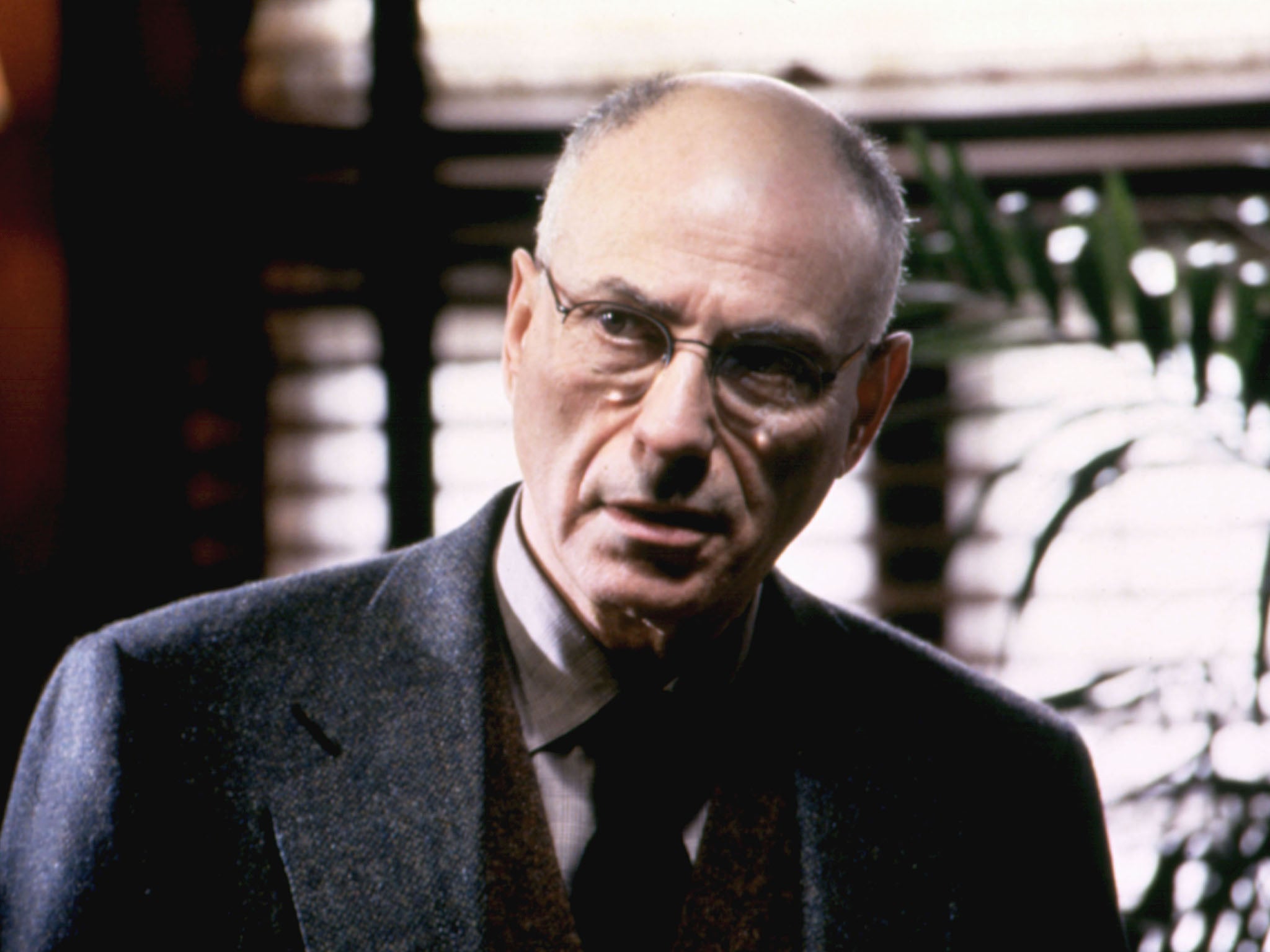
Arkin first got interested in Eastern philosophy in the 1960s, after reading a biography of Gandhi and the memoir of Indian monk Paramahansa Yogananda. He then began attending Hinduism workshops in Santa Fe (where he first met psychotherapist Suzanne Newlander, a friend who became his third wife in 1996). In interviews, and in his books Halfway Through the Door: First Steps on a Path of Enlightenment (1984) and 2020’s Out of My Mind (Not Quite a Memoir), Arkin, who always carried a tiny metal Buddha replica in his pocket, wrote interestingly about spiritual self-discovery and the illusions of existence. His view of life was that it never turns out the way you expect, no matter how much you plan. “Everybody’s life is an improvisation sooner or later, whether you like it or not,” he said.
This profound, thought-provoking man was also always willing to air some of his odder beliefs and experiences. He was an advocate of psychic healing (once claiming to have cured his son’s severe sunburn by putting his hands on him and saying, “Son, will you give me this burn that you’ve got?”) and once revealed his own reincarnation memories.
In his 1984 book Halfway Through the Door: First Steps on a Path of Enlightenment, Arkin recounted a terrifying experience from a past life during the French Revolution. “I could sense the blood lust of my captors and could see a shadowy guillotine. Mercifully in my memory I was spared the moment of my beheading. It was one of the most vivid series of events I’ve experienced in my life. If anyone has an explanation for it, other than saying I was psychotic, I’m happy to listen to them.” Incidentally, Sylvester Stallone once claimed to have been “definitely beheaded during the French Revolution.” One can only hope the two star actors sat down and compared their respective 18th-century head-toppling fates when they worked together on the 2013 boxing comedy Grudge Match.
Arkin admitted that his belief system could be easily misunderstood. “I used to spend a lot of time proselytising – I don’t do that anymore,” he told Andrea Donsky in late 2020. “Meditation is misrepresented a lot. The most important aspects are the things that are invisible. The ways that your emotional system changes. There are things going on inside me now that if I start telling people about it they think I’m crazy. My kids laugh at me when I talk about it. There are only one or two people I can talk to about it without feeling that I am losing my mind, because there is no language in the West that accommodates the kind of things that go on inside you.”
He had little time for the trinkets of stardom. He regularly turned down offers to do lucrative commercials and said the value of cinema is purely as an art form. He once described the thrill of meeting his “hero”, French filmmaker Jean Renoir. “I met director Jean and I basically threw myself at his feet and told him how much his work meant to me and that he was a genius,” Arkin told The Big Issue. “I went on and on so much that he started crying. It was one of the most interesting and vivid moments of my whole life. I would have swept floors for that man.”
Even though his three sons, Adam, Matthew and Anthony, went into acting, Arkin studiously avoided the Hollywood celebrity scene. “I don’t live in LA on purpose, because I don’t want to be immersed in that,” he told Now Toronto. “I have to have a real life, with real people, in order to inform what I’m doing, otherwise it just becomes the snake eating its own tail. Vampirism.” He avoided social media, too, explaining, “I have no Twitter. Life is too short.” He described himself as “a fairly good photographer”, and loved capturing portraits of people juxtaposed against the New Mexico landscape, a place of happy memories where he’d gone as a teenager to work on a dude ranch.
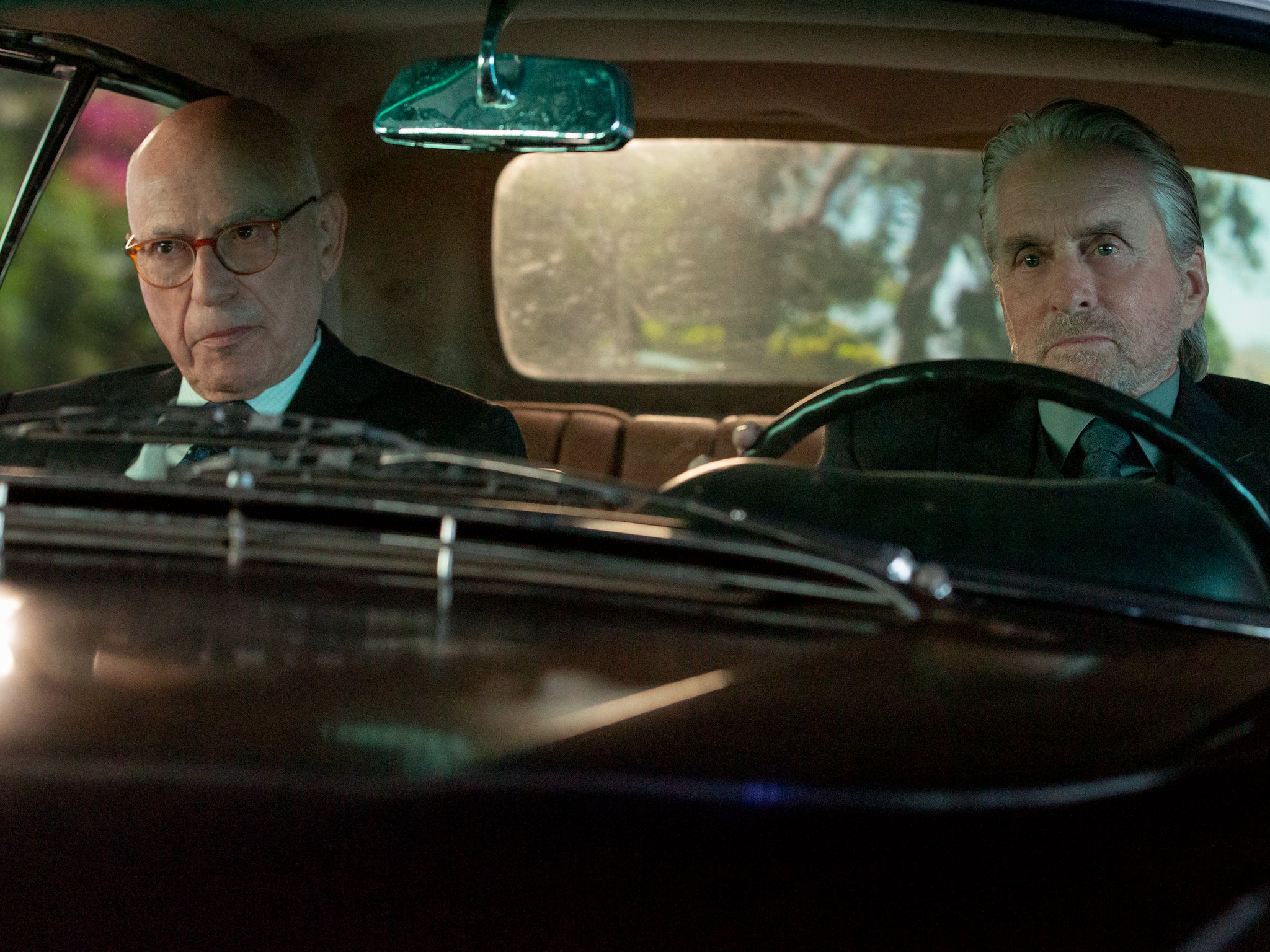
Like Renoir, Arkin remained busy into his eighties. After landing the role in The Kominsky Method, Arkin revealed that Michael Douglas’s theory of why he was getting more offers of work again was that “I am not as abrasive as I used to be”. Douglas even joked that Arkin was “turning into a pussycat” as he aged. Since turning 80 in 2014, Arkin made six movies and three television shows, including his contribution to the brilliant animated series BoJack Horseman, in which he voiced author JD Salinger in four episodes. “I thought BoJack was gloriously nuts and I knew JD Salinger, so I thought it would be fun to spend some time playing him,” Arkin told Sam Frogoso in 2016. “I spent some time at his New Hampshire home, and Salinger was witty, incredibly acerbic and frighteningly self-protective.”
Despite suffering a minor stroke in November 2016, Arkin remained active – something he and his wife put down to their strict organic diet. When Arkin was on set for The Kominsky Method, he kept to his working routine of residing within close walking distance of a Whole Foods store and eating his own organic food on set.
Any fan of masterful acting could appreciate him. “Alan Arkin is mesmerising – he’s just an amazing actor,” Jane Seymour, who played his love interest Madelyn in The Kominsky Method, once said. “Alan could read the telephone directory and he’d be fascinating.”
Join our commenting forum
Join thought-provoking conversations, follow other Independent readers and see their replies
Comments

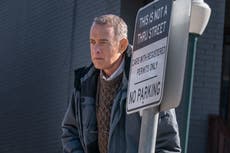
Bookmark popover
Removed from bookmarks